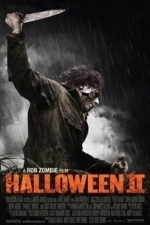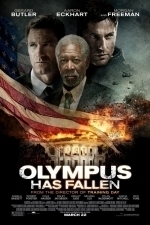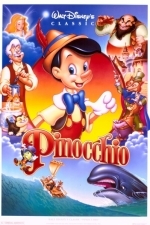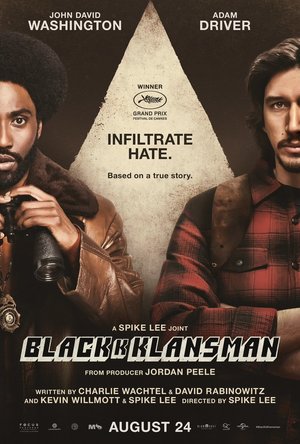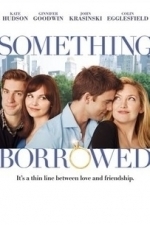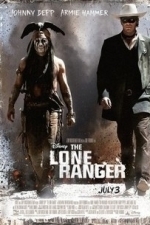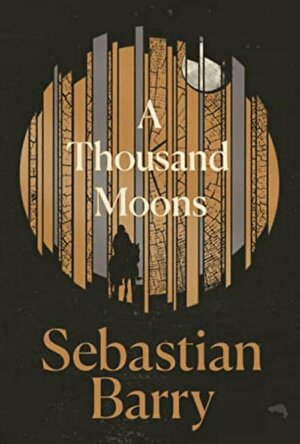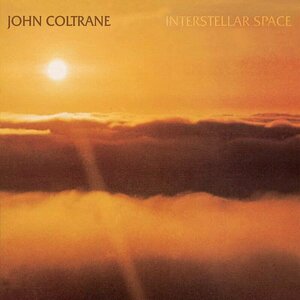Search
Search results
Chris Sawin (602 KP) rated Halloween II (2009) in Movies
Jun 22, 2019 (Updated Jun 23, 2019)
Contains spoilers, click to show
That fateful night in Haddonfield, Laurie Strode shot and killed Michael Myers or so she thought. As the ambulance that pulled what was thought to be the corpse of the world's most notorious serial killer, Michael Myers made sure everyone knew he was still alive the best way he could; by slaughtering whoever got in his way. Now, two years later, Laurie lives with Sheriff Brackett and his daughter Annie. Laurie struggles with hallucinations and panic attacks while believing the therapy she's receiving is only making her worse. As Laurie struggles with her newfound issues, Michael tries to reunite his family. Michael has visions of his mother with a white horse accompanied by his younger self. Michael is returning to Haddonfield to finish the job.
This film has to set the record for dream sequences, which makes you wonder if the entire film is nothing more than a dream. I wasn't exactly a big fan of the remake from 2007 and expectations for this film were incredibly low, nobody can really be prepared for how terrible this film really is. Since there's so much wrong with this film, we'll try and start with what was actually was enjoyable.
Brad Dourif as Sheriff Brackett is really the highlight of the film as far as acting goes. While that probably isn't saying much and his role isn't as big as you may expect, he does a good job with the screen time he gets. His character is intense right from the start, but as things take a turn for the worse for his character his downward spiral is the most enthralling aspect of the film. A few of the deaths were also really satisfying. Mainly Buddy the Secuirty Guard. There's a night scene where an officer is out on Sheriff Brackett's lawn and we're looking at the silhouette of a tree while the officer searches the premises. Before you know it, we see Michael emerge from that tree silhouette and kill the officer.
Everything else in the film was just horrendous. The flaws are almost so overwhelming that it's nearly impossible to know where to begin. The whole white horse thing is ridiculous. So if Deborah Myers tells young Michael that he can think of her whenever he looks at the white horse figurine she gave him, wouldn't that make her a horse by default? The inconsistencies in the film are incredibly glaring, as well. Laurie and Annie's injuries from the previous film seem more severe at the start of this one, Laurie being able to put weight on an injured leg by walking on it but it causing her extreme pain when she's lifted from a stretcher to a bed at the hospital, Michael chopping off a guy's head with a shard of glass, etc. The "Nights in White Satin" thing was literally beaten into your skull by the time the film ended. If you sit through the film, it's like Rob is sitting next to you each time the song comes on nudging you with his elbow going, "Eh? Do you get it? You get it?"
Michael was way too vocal for my liking. Heavy breathing is one thing, but when we're hearing him grunt loudly every time he stabs somebody then it takes a lot of it. When he actually talked at the end of the film, I was done. He also seemed to spend more time stabbing women than men in the film. Guys get their head chopped off or an axe to the back while women get stabbed a dozen times or have their face smashed against a mirror nine times. The choreography didn't seem as good as the remake either. There's a scene where water gets on the camera and it's on there the entire scene. It's interesting at first, but after a few minutes you just want someone to get a towel to wipe it down.
As powerful as Michael seems to be, it at least made a bit more sense in the original film by John Carpenter. Michael was pure evil. That was the explanation, so him not being able to die at least sort of made sense. Now that he's been given this white trash upbringing in the remake, his super strength and inability to die just seems even more farfetched than it originally did. So when Michael is busting through walls and lifting cars with his bare hands all Incredible Hulk style in this film, it's laughable. Not to mention what happened to the Dr. Loomis character. There are just way too many things wrong with this sequel to list here.
Rob Zombie has certainly made Halloween his own with Halloween II. It's just a shame that it's really not worth watching seriously. Let's put it this way, the highlight of the film is Weird Al's cameo. After five films of dealing with white trash families, it's time for Zombie to move on to something different. It's safe to say he's bled that idea bone dry. I wouldn't seriously recommend this film to anyone, but if you're looking for a film to watch with some friends to laugh at and make fun of while it's going then this is the perfect film.
This film has to set the record for dream sequences, which makes you wonder if the entire film is nothing more than a dream. I wasn't exactly a big fan of the remake from 2007 and expectations for this film were incredibly low, nobody can really be prepared for how terrible this film really is. Since there's so much wrong with this film, we'll try and start with what was actually was enjoyable.
Brad Dourif as Sheriff Brackett is really the highlight of the film as far as acting goes. While that probably isn't saying much and his role isn't as big as you may expect, he does a good job with the screen time he gets. His character is intense right from the start, but as things take a turn for the worse for his character his downward spiral is the most enthralling aspect of the film. A few of the deaths were also really satisfying. Mainly Buddy the Secuirty Guard. There's a night scene where an officer is out on Sheriff Brackett's lawn and we're looking at the silhouette of a tree while the officer searches the premises. Before you know it, we see Michael emerge from that tree silhouette and kill the officer.
Everything else in the film was just horrendous. The flaws are almost so overwhelming that it's nearly impossible to know where to begin. The whole white horse thing is ridiculous. So if Deborah Myers tells young Michael that he can think of her whenever he looks at the white horse figurine she gave him, wouldn't that make her a horse by default? The inconsistencies in the film are incredibly glaring, as well. Laurie and Annie's injuries from the previous film seem more severe at the start of this one, Laurie being able to put weight on an injured leg by walking on it but it causing her extreme pain when she's lifted from a stretcher to a bed at the hospital, Michael chopping off a guy's head with a shard of glass, etc. The "Nights in White Satin" thing was literally beaten into your skull by the time the film ended. If you sit through the film, it's like Rob is sitting next to you each time the song comes on nudging you with his elbow going, "Eh? Do you get it? You get it?"
Michael was way too vocal for my liking. Heavy breathing is one thing, but when we're hearing him grunt loudly every time he stabs somebody then it takes a lot of it. When he actually talked at the end of the film, I was done. He also seemed to spend more time stabbing women than men in the film. Guys get their head chopped off or an axe to the back while women get stabbed a dozen times or have their face smashed against a mirror nine times. The choreography didn't seem as good as the remake either. There's a scene where water gets on the camera and it's on there the entire scene. It's interesting at first, but after a few minutes you just want someone to get a towel to wipe it down.
As powerful as Michael seems to be, it at least made a bit more sense in the original film by John Carpenter. Michael was pure evil. That was the explanation, so him not being able to die at least sort of made sense. Now that he's been given this white trash upbringing in the remake, his super strength and inability to die just seems even more farfetched than it originally did. So when Michael is busting through walls and lifting cars with his bare hands all Incredible Hulk style in this film, it's laughable. Not to mention what happened to the Dr. Loomis character. There are just way too many things wrong with this sequel to list here.
Rob Zombie has certainly made Halloween his own with Halloween II. It's just a shame that it's really not worth watching seriously. Let's put it this way, the highlight of the film is Weird Al's cameo. After five films of dealing with white trash families, it's time for Zombie to move on to something different. It's safe to say he's bled that idea bone dry. I wouldn't seriously recommend this film to anyone, but if you're looking for a film to watch with some friends to laugh at and make fun of while it's going then this is the perfect film.
Gareth von Kallenbach (965 KP) rated Olympus Has Fallen (2013) in Movies
Aug 7, 2019
Mike Banning (Butler) is a Secret Service agent in the Presidential detail, and it could be argued a friend to the President; he even lands a punch in an opening boxing practice. All of that changes when, during a horrible automobile accident, the President’s wife is killed. Mike couldn’t save them both, so he chose to save the President. After making “the right call”, as his director (Angela Bassett) tells him; the President just couldn’t stand to be reminded of the failure and moves Mike to the Treasury. Mike wants back into the detail, and he gets his chance when a Korean terrorist infiltrates the White House and all of the fail safes in place to keep an incursion from happening. Banning jumps into action and becomes the only one left/able to save the President and his son.
Admittedly I am a Gerard Butler fan. I see this character as a watered-down, but trying really hard, version of John McLane ala Die Hard. Except the one liners feel forced, not funny, as does the unwarranted use of foul language. A New York cop is one thing for cursing, but it just doesn’t feel right seeing it come out of a Secret Service Agent. Morgan Freeman does an excellent job portraying a man making the tough decisions as Speaker Trumbull (the acting President for much of the movie); he makes mistakes and corrects his actions based on those mistakes. Aaron Eckhart is ok as the President, but doesn’t have the gravity needed to really pull that level of authority off; he is very much an every-man version of the President. His relationship with his son and that of Banning’s and the President’s son is very believable and heartfelt.
While action packed and fast paced; the plot is wholly unbelievable. Maybe I’m just an arrogant American, but I highly doubt the sheer number of protocols that were breached would actually happen. It felt like Eckhart’s character was overriding them through the whole attack sequence. I actually could believe the amount of time it took to respond to the call, but I’ve been to the North Lawn, and could see the snipers from the street and on the surrounding buildings. The White House is just too protected to make an assault like the one depicted.
I enjoyed the movie as long as I didn’t think too much about what was actually happening.
Admittedly I am a Gerard Butler fan. I see this character as a watered-down, but trying really hard, version of John McLane ala Die Hard. Except the one liners feel forced, not funny, as does the unwarranted use of foul language. A New York cop is one thing for cursing, but it just doesn’t feel right seeing it come out of a Secret Service Agent. Morgan Freeman does an excellent job portraying a man making the tough decisions as Speaker Trumbull (the acting President for much of the movie); he makes mistakes and corrects his actions based on those mistakes. Aaron Eckhart is ok as the President, but doesn’t have the gravity needed to really pull that level of authority off; he is very much an every-man version of the President. His relationship with his son and that of Banning’s and the President’s son is very believable and heartfelt.
While action packed and fast paced; the plot is wholly unbelievable. Maybe I’m just an arrogant American, but I highly doubt the sheer number of protocols that were breached would actually happen. It felt like Eckhart’s character was overriding them through the whole attack sequence. I actually could believe the amount of time it took to respond to the call, but I’ve been to the North Lawn, and could see the snipers from the street and on the surrounding buildings. The White House is just too protected to make an assault like the one depicted.
I enjoyed the movie as long as I didn’t think too much about what was actually happening.
Matthew Krueger (10051 KP) rated Pinocchio (1940) in Movies
Dec 5, 2019
An Actor's Life For Me
Pinocchio- was the second animated feature film produced by Disney, made after the first animated success Snow White and the Seven Dwarfs (1937).
The Plot- When the woodworker Geppetto (Christian Rub) sees a falling star, he wishes that the puppet he just finished, Pinocchio (Dickie Jones), could become a real boy. In the night, the Blue Fairy (Evelyn Venable) grants Geppetto's wish and asks Jiminy Cricket (Cliff Edwards) to serve as the wooden boy's conscience. But the naive and trusting Pinocchio falls into the clutches of the wicked Honest John (Walter Catlett), who leads him astray to the sinful Pleasure Island.
Critical analysis of Pinocchio identifies it as a simple morality tale that teaches children of the benefits of hard work and conventional values. Although it became the first animated feature to win a competitive Academy Award – winning two for Best Music, Original Score and for Best Music, Original Song for "When You Wish Upon a Star" – it was initially a box office disaster, due to World War II. It eventually made a profit in its 1945 reissue, and is considered one of the greatest animated films ever made, with a 100% rating on the website Rotten Tomatoes.
All the songs are great and fanstastic, classics and you remember till this day. When You Wish Upon a Star, Little Wooden Head, Give A Little Whistle, Hi-Diddle-Dee-Dee and I've Got No Strings. All classics and all excellent.
A must watch film.
The Plot- When the woodworker Geppetto (Christian Rub) sees a falling star, he wishes that the puppet he just finished, Pinocchio (Dickie Jones), could become a real boy. In the night, the Blue Fairy (Evelyn Venable) grants Geppetto's wish and asks Jiminy Cricket (Cliff Edwards) to serve as the wooden boy's conscience. But the naive and trusting Pinocchio falls into the clutches of the wicked Honest John (Walter Catlett), who leads him astray to the sinful Pleasure Island.
Critical analysis of Pinocchio identifies it as a simple morality tale that teaches children of the benefits of hard work and conventional values. Although it became the first animated feature to win a competitive Academy Award – winning two for Best Music, Original Score and for Best Music, Original Song for "When You Wish Upon a Star" – it was initially a box office disaster, due to World War II. It eventually made a profit in its 1945 reissue, and is considered one of the greatest animated films ever made, with a 100% rating on the website Rotten Tomatoes.
All the songs are great and fanstastic, classics and you remember till this day. When You Wish Upon a Star, Little Wooden Head, Give A Little Whistle, Hi-Diddle-Dee-Dee and I've Got No Strings. All classics and all excellent.
A must watch film.
Gareth von Kallenbach (965 KP) rated BlacKkKlansman (2018) in Movies
Jul 8, 2019
From Director Spike Lee comes the incredible story of true American hero. In the early 1970s, Ron Stallworth (John David Washington) is the first African-American detective to serve in the Colorado Springs Police Department. Determined to make a name for himself, Stallworth bravely sets out on a dangerous mission: infiltrate and expose the Ku Klux Klan. The movie is based on Stallworth’s 2014 book Black Klansman, which details his experience. When it came time to meet the Klan members face-to-face, he utilized the help of a white undercover narcotics officer (Adam Driver in the movie), who posed as Stallworth for all in-person meetings with the Klan. Together, they team up to take down the extremist hate group as the organization aims to sanitize its violent rhetoric to appeal to the mainstream.
The film is very creative in the way that it presents history and allows the audience ride along with the action, suspense, and anxiety experience by Washington and Driver’s characters. The tone of the film, at times, is lighthearted in its approach but quickly draws you back in when faced with the reality that David Duke, and people like him walk among us dressing up their racism with non-threatening slogans, professional attire, and a clean-cut package.
The story displayed is a reminder that racism in America has a long history and is not isolated geographically to the south nor limited to Charlottesville or Charleston. The attitudes and actions committed by those who agree with the stances of white supremacy and white supremacist organizations have had a drastic impact on the development of American society. It has shaped and misshapen our attitudes towards one another. It continues to affect us today as we all bear witness to unbridled racism or the downplaying of racism with terms like “political correctness.” This film is timely in its approach and offers audiences a more full and expansive view of what combatting racism and racist attitudes and actions looks like.
Blackkklansman is a film that many have waited for when first hearing about the story of Ron Stallworth and they will not be disappointed with what they witness on screen. Sadly, the people who desperately need to see this movie may pass on it because they are uncomfortable with the subject matter and the reality that they themselves may be complicit in the continuance of racism and white supremacy. This film feels like a conversation being conducted directly between the director and audience. There are subtleties that allow the audience to think about the meaning and even parallel between the early 1970s and the current political environment, as well as, moments where there is no hiding of the message, no metaphor, no allegory. The filmmakers make it clear for those watching that many of us need to wake up almost as blatantly as Spike Lee promotes one of his earlier films, School Daze.
The only problem I found with the film was that I was left wanting more discussion. I wanted to see more of what Ron Stallworth dealt with as the only black detective in his department. If anything, this shows a real strength in the film by leaving audiences emotionally connected with the horrors that he faced, as well as, the way that those around him come to grips with the reality of the hatred and racial violence that had overlooked before because it did not have a direct effect on them. Blackkklansman is a film that will have audiences reflecting long after the credits have rolled. Hopefully the themes, metaphors, and overall message will help foster overdue and well-needed conversations about race, racism, prejudice, and violence. This film takes audiences out of their comfort zones and forces them to face some of the dark corners of America for two hours. Within that two hours, hopefully the people who don’t recognize racism and bigotry get a glimpse of the true horror and fear that marginalized communities feel on a daily basis so that they themselves can be agents of change and fight against racism.
The film is very creative in the way that it presents history and allows the audience ride along with the action, suspense, and anxiety experience by Washington and Driver’s characters. The tone of the film, at times, is lighthearted in its approach but quickly draws you back in when faced with the reality that David Duke, and people like him walk among us dressing up their racism with non-threatening slogans, professional attire, and a clean-cut package.
The story displayed is a reminder that racism in America has a long history and is not isolated geographically to the south nor limited to Charlottesville or Charleston. The attitudes and actions committed by those who agree with the stances of white supremacy and white supremacist organizations have had a drastic impact on the development of American society. It has shaped and misshapen our attitudes towards one another. It continues to affect us today as we all bear witness to unbridled racism or the downplaying of racism with terms like “political correctness.” This film is timely in its approach and offers audiences a more full and expansive view of what combatting racism and racist attitudes and actions looks like.
Blackkklansman is a film that many have waited for when first hearing about the story of Ron Stallworth and they will not be disappointed with what they witness on screen. Sadly, the people who desperately need to see this movie may pass on it because they are uncomfortable with the subject matter and the reality that they themselves may be complicit in the continuance of racism and white supremacy. This film feels like a conversation being conducted directly between the director and audience. There are subtleties that allow the audience to think about the meaning and even parallel between the early 1970s and the current political environment, as well as, moments where there is no hiding of the message, no metaphor, no allegory. The filmmakers make it clear for those watching that many of us need to wake up almost as blatantly as Spike Lee promotes one of his earlier films, School Daze.
The only problem I found with the film was that I was left wanting more discussion. I wanted to see more of what Ron Stallworth dealt with as the only black detective in his department. If anything, this shows a real strength in the film by leaving audiences emotionally connected with the horrors that he faced, as well as, the way that those around him come to grips with the reality of the hatred and racial violence that had overlooked before because it did not have a direct effect on them. Blackkklansman is a film that will have audiences reflecting long after the credits have rolled. Hopefully the themes, metaphors, and overall message will help foster overdue and well-needed conversations about race, racism, prejudice, and violence. This film takes audiences out of their comfort zones and forces them to face some of the dark corners of America for two hours. Within that two hours, hopefully the people who don’t recognize racism and bigotry get a glimpse of the true horror and fear that marginalized communities feel on a daily basis so that they themselves can be agents of change and fight against racism.
Gareth von Kallenbach (965 KP) rated Something Borrowed (2011) in Movies
Aug 7, 2019
“Sometimes good people do bad things!”
Rachel (Ginnifer Goodwin) is a successful New York City lawyer, the ever-loyal and perpetual good girl, who, on the night of her surprise 30th birthday party, sleeps with Dex, her old study buddy and secret crush from law school. Unfortunately, Dex happens to be the fiancé of Rachel’s egotistical best friend Darcy’s (Kate Hudson). Throughout the movie you find Rachel conflicted with the thought of hurting her best friend because she has just realized she is in love with Dex (Colin Egglesfield). Dex feels equally guilty for having fallen for Rachel but would rather do what everyone expects him to do, as opposed to following his heart.
As Rachel tries to assist the self-absorbed party girl Darcy plan her wedding, she finds it difficult to to hide her feelings for Dex. Rachel and Darcy’s childhood friend Ethan (John Krasinski) figures out that Rachel and Dex are more than just friends. He lends a shoulder for Rachel to lean on as well as some very harsh criticisms to help her realize that she does deserve to be happy.
Based on the novel written by Emily Giffin, Something Borrowed is a romantic comedy that explores the true meaning of friendship, love and ethics. Always a fan of Ginnifer Goodwin, she does a decent job at playing our heroine/doormat, Rachel White. Kate Hudson was spot-on with the role of self-centered, always-gets-her-way Darcy. And let’s not forget the Tom Cruise look-alike, Colin Egglesfield, who for some reason didn’t impress me much as Dex. I can’t quite put my finger on it, but there was definitely something missing there. Plug in some weekend getaways to the Hamptons, some awkward drinking and partying moments, some flashback moments of Darcy and Rachel’s childhood as well as flashbacks to Rachel’s law school days when she was swooning over Dex and voila! A mediocre, very predictable movie. I’d have to say if it wasn’t for the sarcastic comedic stylings of John Krasinski as Ethan, this movie would have been a major flop.
This film is definitely a twist on My Best Friend’s Wedding, but not in the best way. If nothing else, it’s worth seeing as a “girls night out” kind of movie!
Rachel (Ginnifer Goodwin) is a successful New York City lawyer, the ever-loyal and perpetual good girl, who, on the night of her surprise 30th birthday party, sleeps with Dex, her old study buddy and secret crush from law school. Unfortunately, Dex happens to be the fiancé of Rachel’s egotistical best friend Darcy’s (Kate Hudson). Throughout the movie you find Rachel conflicted with the thought of hurting her best friend because she has just realized she is in love with Dex (Colin Egglesfield). Dex feels equally guilty for having fallen for Rachel but would rather do what everyone expects him to do, as opposed to following his heart.
As Rachel tries to assist the self-absorbed party girl Darcy plan her wedding, she finds it difficult to to hide her feelings for Dex. Rachel and Darcy’s childhood friend Ethan (John Krasinski) figures out that Rachel and Dex are more than just friends. He lends a shoulder for Rachel to lean on as well as some very harsh criticisms to help her realize that she does deserve to be happy.
Based on the novel written by Emily Giffin, Something Borrowed is a romantic comedy that explores the true meaning of friendship, love and ethics. Always a fan of Ginnifer Goodwin, she does a decent job at playing our heroine/doormat, Rachel White. Kate Hudson was spot-on with the role of self-centered, always-gets-her-way Darcy. And let’s not forget the Tom Cruise look-alike, Colin Egglesfield, who for some reason didn’t impress me much as Dex. I can’t quite put my finger on it, but there was definitely something missing there. Plug in some weekend getaways to the Hamptons, some awkward drinking and partying moments, some flashback moments of Darcy and Rachel’s childhood as well as flashbacks to Rachel’s law school days when she was swooning over Dex and voila! A mediocre, very predictable movie. I’d have to say if it wasn’t for the sarcastic comedic stylings of John Krasinski as Ethan, this movie would have been a major flop.
This film is definitely a twist on My Best Friend’s Wedding, but not in the best way. If nothing else, it’s worth seeing as a “girls night out” kind of movie!
Gareth von Kallenbach (965 KP) rated The Lone Ranger (2013) in Movies
Jun 19, 2019
With much of the pre-release coverage of the film centered on the reportedly $250 million plus shooting budget, audiences can finally see the fruits of this labor as Disney brings “The Lone Ranger” to the big screen. The movie stars Johnny Depp as Tonto and tells a slightly updated tale of the masked ranger, yet stays refreshingly grounded in the traditions and history of the source material.
Armie Hammer stars as John Reid, a district attorney who returns to Texas to provide justice to a lawless land that is in the process of great expansion thanks to the pending completion of the Transcontinental Railroad. In the 1860s, the country is in a great state of change as the completion of the railroad will allow people to travel coast-to-coast across, something that was once an extremely long and dangerous journey to undertake.
The local railroad administrator plans to do a public hanging of notorious outlaw murder Butch Cavendish (William Fichtner), as an example of how law and order has come to the wild frontier, a show to encourage Western expansion and install a sense of security in the local populace. The local Comanche tribes are told that as long as they continue to honor the established treaties they will be able to coexist in peace with the Western settlers.
Following a daring escape from the train that is carrying him to justice, Cavendish departs into the desert with his gang of outlaws. Not willing to let him escape justice once again, Reid’s brother Dan deputizes John, and leads the posse to bring Cavendish to justice. Now as anybody who’s followed any of the previous incarnations of the story knows, the posse is ambushed and all the Rangers are brutally murdered by Cavendish and is outlaws. Enter Tonto, who discovers John barely alive, and overseas his restoration to health. It is Tonto who convinces Reid to wear a mask as he is convinced that Cavendish had help and that it would be best for John and his brother’s family if the world believed John died with the other rangers to save them from any possible retribution
In a refreshing change of pace, Reid is not a swaggering fountain of machismo. He is a man who puts his faith in the law rather than in a six shooter and is actually hesitant to fire a weapon and use lethal forms of violence to dispense justice. This brings him at odds from time to time with Tonto who tries to walk the thin line between his people and his beliefs and the ever-changing modern world around him.
When the military began systematically retaliating against Tonto’s people for perceived raids against the townspeople, Reid and Tonto not only must deal with Cavendish and his gang of outlaws but must get to the bottom of a larger mystery that threatens to not only eradicate the Comanche people but to threaten the good citizens of the area. With his trusty and at times comical white horse, Silver, Reid and Tonto must learn to coexist with each other in a desperate race against time.
The film was an extremely enjoyable and fresh take on the characters that I really enjoyed. By giving the characters slightly more updated and relatable personas and traits yet retaining their core identities in history, Depp and Hammer made this a Western that was fun and cool and yet stayed true to the origins of the characters while making them more appealing to a modern audience. What really impressed me was Depp how he took what is often jokingly seen as a stereo typical Western sidekick and made him a very compelling yet diverse character. Yes, there is a lot of humor in the film but it is entertainingly at the expense of Reid, most often with Tonto getting some of the best lines in the film. I really appreciated the fact how it told a story without being overly politically correct or preaching, letting the characters and the action convey the message.
The action in the film is solid and the harrowing finale had people in the test screening cheering the action. Producer Jerry Bruckheimer and Director Gore Verbinski are to be commended for bringing a lively story that introduces the iconic characters to a new generation of fans. I hope that the film is able to draw fans and gives Disney’s a good return on its large investment as I would love to see Depp and Hammer back for future adventures. “The Lone Ranger” was the most pleasant surprise of the summer to date and the only summer film so far that I would pay to see again.
http://sknr.net/2013/07/03/the-lone-ranger/
Armie Hammer stars as John Reid, a district attorney who returns to Texas to provide justice to a lawless land that is in the process of great expansion thanks to the pending completion of the Transcontinental Railroad. In the 1860s, the country is in a great state of change as the completion of the railroad will allow people to travel coast-to-coast across, something that was once an extremely long and dangerous journey to undertake.
The local railroad administrator plans to do a public hanging of notorious outlaw murder Butch Cavendish (William Fichtner), as an example of how law and order has come to the wild frontier, a show to encourage Western expansion and install a sense of security in the local populace. The local Comanche tribes are told that as long as they continue to honor the established treaties they will be able to coexist in peace with the Western settlers.
Following a daring escape from the train that is carrying him to justice, Cavendish departs into the desert with his gang of outlaws. Not willing to let him escape justice once again, Reid’s brother Dan deputizes John, and leads the posse to bring Cavendish to justice. Now as anybody who’s followed any of the previous incarnations of the story knows, the posse is ambushed and all the Rangers are brutally murdered by Cavendish and is outlaws. Enter Tonto, who discovers John barely alive, and overseas his restoration to health. It is Tonto who convinces Reid to wear a mask as he is convinced that Cavendish had help and that it would be best for John and his brother’s family if the world believed John died with the other rangers to save them from any possible retribution
In a refreshing change of pace, Reid is not a swaggering fountain of machismo. He is a man who puts his faith in the law rather than in a six shooter and is actually hesitant to fire a weapon and use lethal forms of violence to dispense justice. This brings him at odds from time to time with Tonto who tries to walk the thin line between his people and his beliefs and the ever-changing modern world around him.
When the military began systematically retaliating against Tonto’s people for perceived raids against the townspeople, Reid and Tonto not only must deal with Cavendish and his gang of outlaws but must get to the bottom of a larger mystery that threatens to not only eradicate the Comanche people but to threaten the good citizens of the area. With his trusty and at times comical white horse, Silver, Reid and Tonto must learn to coexist with each other in a desperate race against time.
The film was an extremely enjoyable and fresh take on the characters that I really enjoyed. By giving the characters slightly more updated and relatable personas and traits yet retaining their core identities in history, Depp and Hammer made this a Western that was fun and cool and yet stayed true to the origins of the characters while making them more appealing to a modern audience. What really impressed me was Depp how he took what is often jokingly seen as a stereo typical Western sidekick and made him a very compelling yet diverse character. Yes, there is a lot of humor in the film but it is entertainingly at the expense of Reid, most often with Tonto getting some of the best lines in the film. I really appreciated the fact how it told a story without being overly politically correct or preaching, letting the characters and the action convey the message.
The action in the film is solid and the harrowing finale had people in the test screening cheering the action. Producer Jerry Bruckheimer and Director Gore Verbinski are to be commended for bringing a lively story that introduces the iconic characters to a new generation of fans. I hope that the film is able to draw fans and gives Disney’s a good return on its large investment as I would love to see Depp and Hammer back for future adventures. “The Lone Ranger” was the most pleasant surprise of the summer to date and the only summer film so far that I would pay to see again.
http://sknr.net/2013/07/03/the-lone-ranger/
ClareR (5571 KP) rated A Thousand Moons in Books
Apr 10, 2020
A Thousand Moons is set after the American Civil War in 1870’s Tennessee. This book follows on from Days Without End, and whilst I haven’t read it (yet! It’s on my bookshelf!), it didn’t affect my enjoyment at all.
Winona is a Lakota orphan who has been adopted by former soldiers Thomas McNulty and John Cole. She lives on their farm with them and Lige Magan, and two ex-slaves, Rosalee and Tennyson. Racism is still rife: Native Americans are seen as little more than animals, and black people are still hanged in the streets without trial for minor infractions.
Despite this, Winona has an admirer who wants to marry her: a white man. He’s persistent, and she doesn’t seem sure as to whether she really wants to marry him. And then something terrible happens. Winona is brought home: she is battered, raped and she doesn’t remember what happened or who did it.
This is such an emotional book. Winona’s reaction after her attack, coupled with the fact that she will never have any protection under the law, is heartbreaking.
Things that happen to other characters just seems to show starkly the injustices in the USA at this time. But it is all told in the most beautiful way. The writing really is exquisite: the descriptions of Winona’s inner thoughts, the descriptions of the landscape, and the way that life is shown, all really drew me in to this story. I loved reading it every day on The Pigeonhole. I will certainly be getting the first book in this series down off the shelf to read.
Many thanks to The Pigeonhole for serialising this book, and to Sebastian Barry for joining in.
Winona is a Lakota orphan who has been adopted by former soldiers Thomas McNulty and John Cole. She lives on their farm with them and Lige Magan, and two ex-slaves, Rosalee and Tennyson. Racism is still rife: Native Americans are seen as little more than animals, and black people are still hanged in the streets without trial for minor infractions.
Despite this, Winona has an admirer who wants to marry her: a white man. He’s persistent, and she doesn’t seem sure as to whether she really wants to marry him. And then something terrible happens. Winona is brought home: she is battered, raped and she doesn’t remember what happened or who did it.
This is such an emotional book. Winona’s reaction after her attack, coupled with the fact that she will never have any protection under the law, is heartbreaking.
Things that happen to other characters just seems to show starkly the injustices in the USA at this time. But it is all told in the most beautiful way. The writing really is exquisite: the descriptions of Winona’s inner thoughts, the descriptions of the landscape, and the way that life is shown, all really drew me in to this story. I loved reading it every day on The Pigeonhole. I will certainly be getting the first book in this series down off the shelf to read.
Many thanks to The Pigeonhole for serialising this book, and to Sebastian Barry for joining in.
Kurt Vile recommended Interstellar Space by John Coltrane in Music (curated)
Cyn Armistead (14 KP) rated The Horns of Elfland in Books
Mar 1, 2018
It took a while to track down this volume, as it has long been out of print. Interlibrary loan was, once again, my friend. But how odd to read an actual physical book again, when I've been reading ebooks almost exclusively lately!
Most of the stories were a bit darker than anticipated. 1997 was not such a depressing time to me, so I'm not sure why that would be the case.
I've had to send the book back to the library already, so I don't have it at hand despite finishing it last night.
The first standout story was "The Drummer and the Skins" by [a:John Brunner|23113|John Brunner|http://photo.goodreads.com/authors/1234623516p2/23113.jpg]. Finding a reference to a Yoruban peoples' tradition in a white British author's story was somewhat surprising, but go figure. I'm a white southern American woman, too. I suppose some people might argue that neither of us have no right to be interested/know about such things/whatever. I think of Brunner as a very hard SF writer, so that was especially surprising from him. His inclusion in a fantasy anthology was a surprise altogether. These surprises are some of the things I enjoy about anthologies - they challenge my assumptions.
I was rather bitter when I first thought I understood what [a:Terri Windling|46137|Terri Windling|http://photo.goodreads.com/authors/1235254340p2/46137.jpg]'s novelette "The Color of Angels was about. "Just what I need to read about," I told Sam. "A story about a woman gradually losing everything she loves to illness." MS, in the story (not one of my diagnoses, but it hit far too close to home, anyway). Suffice it to say that I was glad that I continued to read.
Even if I hadn't been happy with where the story went, I would not have been able to resist Windling's writing. She brings in so much of the world - colors, textures, music - so that I felt far more immersed in that one piece than I have in my own life at times. She is marvelously evocative. I haven't managed to put my hands on any of the Bordertown/Borderlands books, despite seeking them for a long time. Now I'm adding her solo works to to the "look for" list, and pushing them much higher on the priority scale.
"The Death of Raven" by [a:Ellen Kushner|11889|Ellen Kushner|http://photo.goodreads.com/authors/1243007888p2/11889.jpg] was unexpectedly comforting. Very brief, quite simply, but one I would love to see reprinted to increase its availability. (It may have been reprinted, for all I know. I certainly hope that it has been.) I've got Kushner's novels on my "to-read" shelf, but I think I'll move them up a bit.
Most of the stories were a bit darker than anticipated. 1997 was not such a depressing time to me, so I'm not sure why that would be the case.
I've had to send the book back to the library already, so I don't have it at hand despite finishing it last night.
The first standout story was "The Drummer and the Skins" by [a:John Brunner|23113|John Brunner|http://photo.goodreads.com/authors/1234623516p2/23113.jpg]. Finding a reference to a Yoruban peoples' tradition in a white British author's story was somewhat surprising, but go figure. I'm a white southern American woman, too. I suppose some people might argue that neither of us have no right to be interested/know about such things/whatever. I think of Brunner as a very hard SF writer, so that was especially surprising from him. His inclusion in a fantasy anthology was a surprise altogether. These surprises are some of the things I enjoy about anthologies - they challenge my assumptions.
I was rather bitter when I first thought I understood what [a:Terri Windling|46137|Terri Windling|http://photo.goodreads.com/authors/1235254340p2/46137.jpg]'s novelette "The Color of Angels was about. "Just what I need to read about," I told Sam. "A story about a woman gradually losing everything she loves to illness." MS, in the story (not one of my diagnoses, but it hit far too close to home, anyway). Suffice it to say that I was glad that I continued to read.
Even if I hadn't been happy with where the story went, I would not have been able to resist Windling's writing. She brings in so much of the world - colors, textures, music - so that I felt far more immersed in that one piece than I have in my own life at times. She is marvelously evocative. I haven't managed to put my hands on any of the Bordertown/Borderlands books, despite seeking them for a long time. Now I'm adding her solo works to to the "look for" list, and pushing them much higher on the priority scale.
"The Death of Raven" by [a:Ellen Kushner|11889|Ellen Kushner|http://photo.goodreads.com/authors/1243007888p2/11889.jpg] was unexpectedly comforting. Very brief, quite simply, but one I would love to see reprinted to increase its availability. (It may have been reprinted, for all I know. I certainly hope that it has been.) I've got Kushner's novels on my "to-read" shelf, but I think I'll move them up a bit.
